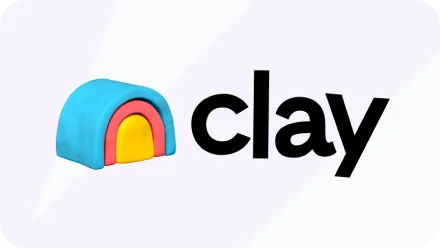A quiet revolution is reshaping how sales teams find leads—and Clay is leading it. With $100 million in fresh funding and a bold engineering-first vision, this AI-powered startup is turning traditional marketing on its head.
In a business world still drowning in cold emails and generic pitches, one New York-based startup is proving there’s a smarter way to sell. Clay, a sales automation company built for the AI era, just raised $100 million in funding, putting its valuation at a staggering $3.1 billion.
Led by CapitalG—Alphabet’s growth fund—and backed by Sequoia Capital and Meritech Capital, the round underscores one thing: Investors are betting that sales itself is due for a major reboot.
Key Takeaways:
- Clay raised $100M at a $3.1B valuation—nearly 3x from its last round just 6 months ago.
- Clay’s AI engine powers personalized lead generation, replacing the need for spammy mass outreach.
- Built for “go-to-market engineers,” Clay blends coding and automation to give sales reps an edge.
- Clients include OpenAI, Google, and 10,000+ others, with revenue expected to triple to $100M this year.
- Despite its rapid growth, the company is already close to profitability and burns relatively little cash.
At its core, Clay helps sales and marketing teams do one thing better: find the right customers, faster—and with far more precision than ever before. But it doesn’t stop at automation. Clay lets its users “program” AI to uncover hidden leads, track potential clients, and trigger personalized engagement workflows—sometimes even counting parking spots via Google Maps to pinpoint high-traffic warehouses.

Sounds niche? That’s the point.
A Sales Tool Built for Coders
Rather than making another flashy AI chatbot or CRM plugin, Clay built its platform around what it calls the “go-to-market engineer”—a hybrid persona blending sales instincts with technical skills.
By designing for this new class of marketing-savvy builders, Clay empowers teams to design their own growth engines, integrating with countless tools and APIs to create hyper-targeted outreach campaigns.
It’s no surprise then that Anysphere (maker of Cursor), OpenAI, and Google use Clay across their go-to-market functions.
“Clay is the only company taking an engineering approach to go-to-market,” said Jane Alexander, partner at CapitalG.
From Startup to Scale-Up: Clay
Founded in 2017 by Kareem Amin and Nicolae Rusan, Clay initially had a broader goal: democratizing programming. But a sharp pivot to sales automation turned out to be a goldmine.
Since focusing on lead generation, the company has grown to 180 employees, serving over 10,000 paying customers. Revenue is on track to triple this year to $100 million, and the company is nearly profitable, according to Amin.
“We burn very little cash,” he said. “If anything, investors are pushing us to spend more.”
Why Investors Are All In
This isn’t just about another CRM tool. Clay represents a broader shift in how modern companies approach sales: less guesswork, more engineering.
The Clay platform integrates with hundreds of tools, enabling users to build complex automations across CRMs, email systems, and data sources. That makes it incredibly powerful, but also, at times, “unwieldy,” according to Eric Nowoslawski, a lead gen expert and former Clay employee.
Amin agrees: “We have to make sure we’re not adding so much power that it becomes too complex.”
Competition and Claygencies
Of course, Clay isn’t alone. Major players like ZoomInfo have launched rival products like GTM Studio, and dozens of lead-gen agencies built entirely on Clay—nicknamed “Claygencies”—are now popping up.
There are even 60+ global Clay user clubs where users swap automation recipes and optimization tips.
Still, CapitalG believes Clay will become “the default platform every team uses to go to market.”
What Clay offers, its backers argue, isn’t about replacing people with AI—it’s about removing the parts of sales no one wants to do.
“Automatically updating the stuff for your leads—is that what we want to do?” said Alfred Lin, partner at Sequoia.
Conclusion
Clay isn’t building a future where AI replaces humans—it’s building tools to let humans sell smarter. With a rare blend of technical depth, product-market fit, and investor confidence, Clay is not just chasing leads—it’s leading the chase.
